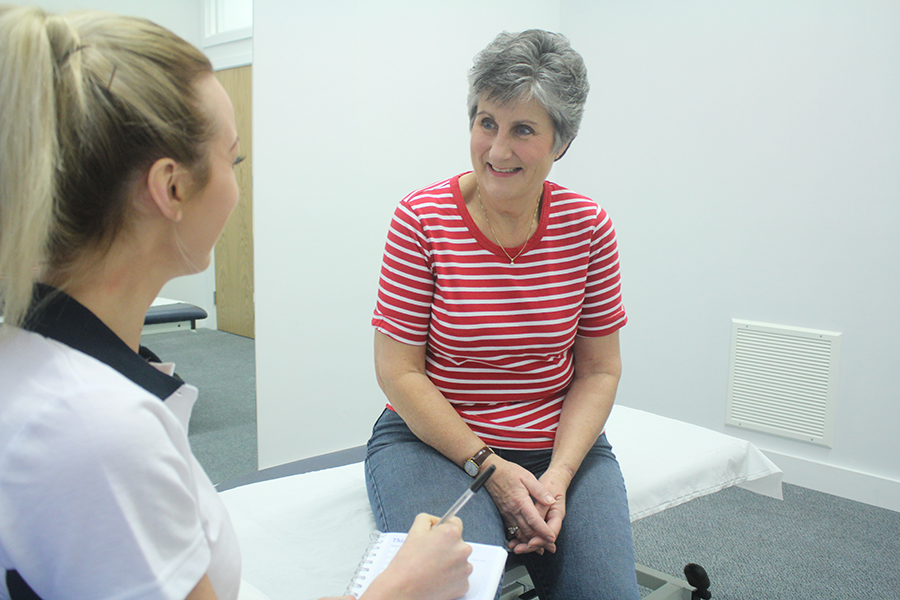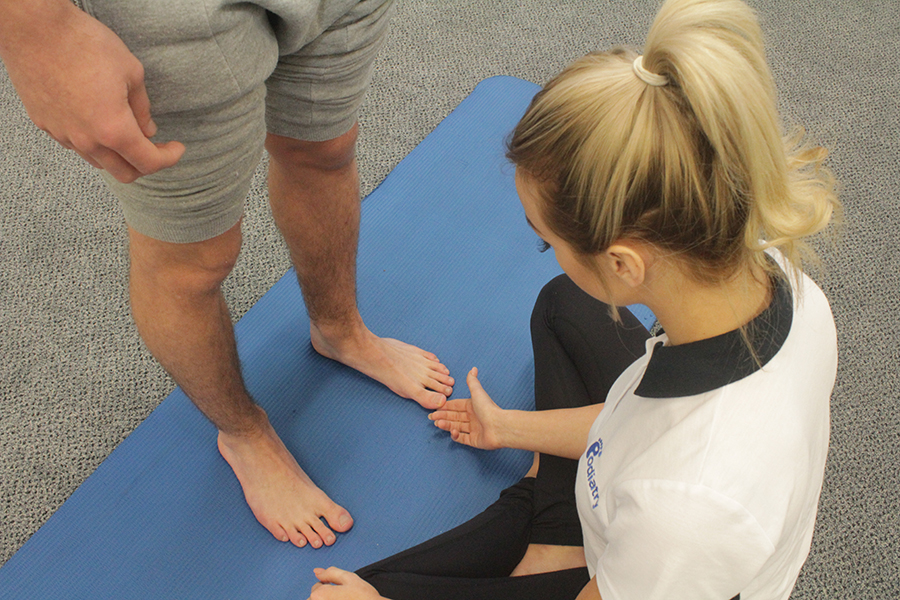Hammer toes
Hammer toes are toes that have contracted into a flexed position. Hammer toes can be painful and can make finding accommodative footwear difficult. If you have hammer toes visit a podiatrist who can advise you on what can be done to either correct the deformity or prevent it from worsening. Your podiatrist can also help reduce any pain and discomfort caused by your hammer toe, enabling you to get on with your daily activities.
What are hammer toes?
A hammer toe is a toe that has contracted at the proximal phalanx (this is the toe bone next to the metatarsal) and this creates extra pressure on top of this joint and also at the tip of the toe. Hammer toes affect the lesser toes; the second toe is most commonly affected.
What causes a hammer toe?
Hammer toes occur due to muscular imbalance, which forces the bones of the toe into a flexed position. The lesser toes consist of three bones; these bones are called phalanges. The phalanges are named according to their position anatomically, each toe therefore has a proximal phalange (this means it is closer to the midline of the body), an intermediate phalange (this means that it is in the middle), and a distal phalange (this means that it is furthest away from the body). A number of muscles and tendons attach to the toes, sometimes as a result of poor foot biomechanics these tighten creating a muscle imbalance which contracts the toe, forcing it to bend; this creates a hammer toe.
- Ill-fitting footwear
- Injury
- Poor foot biomechanics
- Conditions that effect the muscles and nerves, for example:
- Diabetes
- Rheumatoid arthritis
- Stroke

What are the signs and symptoms of a hammer toe?
Hammer toes have a curled appearance, bending downwards at the proximal phalanx. As a result, extra pressure is placed on the tip of the toe and also on top of the joint, as a consequence of this extra pressure people with hammer toes may also have:
- Corn or callus formation on the tip of the toe and/or on top of the toe joint
- Sores/ulcers on the tip of the toe and/or on top of the toe joint
- Pain when walking
Types of hammer toe
There are three types of hammer toe, they are:
- Hammer toe: a true hammer toe is as discussed and flexion occurs at the proximal phalanx
- Mallet toe: a mallet toe is flexed at the distal phalanx
- Claw toe: a claw toe is when there is a flexion deformity at both the proximal and distal phalanges
The above can then be classified according to flexibility. A hammer toe can be either:
- Rigid (non-reducible or fixed) : the toe does not straighten at all
- Flexible (reducible ): the toe can be straightened but quickly 'springs' back into its flexed position
How are hammer toes diagnosed?
Your podiatrist will be able to tell you if you have hammer toes simply by examining your feet. Imaging such as X-ray is not normally necessary unless a condition such as rheumatoid arthritis is suspected.
Benefits of podiatry for hammer toes
If you have hammer toes you will benefit from assessment and treatment at Chiropody.co.uk. Once you have been assessed, and a management plan has been put in place you can expect benefits such as these:
- Reduction in pain
- Reduction in inflammation
- Removal of corns
- Removal of callous
- Improvement in muscle and tendon tightness
- Improvement in foot function
- Improvement in comfort
To find out more please contact Chiropody.co.uk for an assessment.
What treatment is there for hammer toes?
Treatment for hammer toes depends on the severity of the flexion deformity and the underlying cause. It is not always possible to correct a deformity without surgery; however, there are definitely things you can do to prevent the flexion deformity worsening and to improve any discomfort you may be experiencing. Your podiatrist will be able to advise you on the treatment best for you, which may include:
- Orthotics
- Stretching Programme
- Silipos
- Protective padding
- Corn treatment
- Callus treatment
- Advice and education
- Footwear review
- Surgery
A podiatrist is a highly trained medical professional; they will be able to tell you what the best course of action for your hammer toe deformity is. Your podiatrist will not simply treat your symptoms; they will address the underlying cause as well.

What would podiatry for hammer toes involve?
Your podiatrist will begin by taking thorough medical and social history; they will then examine the feet and assess the range of motion and the quality of movement in the toe joint. If you have any corn or callus formation as a result of your hammer toe this will be addressed. If your hammer toe is due to poor biomechanics you can be referred for a Biomechanical assessment . Any treatment plan will be discussed with you and will be based on what is appropriate and achievable for you.
Summary
Hammer toes are toes that have contracted into a flexed position due to the muscles and tendons in the foot tightening, pulling the toe into this position. There are a number of contributing factors for the development of hammer toes, for example; ill-fitting footwear, poor foot biomechanics, and some muscular and neurological conditions. Treatment for hammer toes is dependent upon the severity of the deformity. Your podiatrist can help.
To arrange an assessment with one our podiatrists please email office@chiropody.co.uk or call 0330 088 4222.
Save 5% by booking an appointment online.



We work with:

Individuals

Organisations

Health professionals
Get in Touch!
0330 088 4222
If you would like to speak to one of our specialists then please complete this form.
We are open 7 days a week








